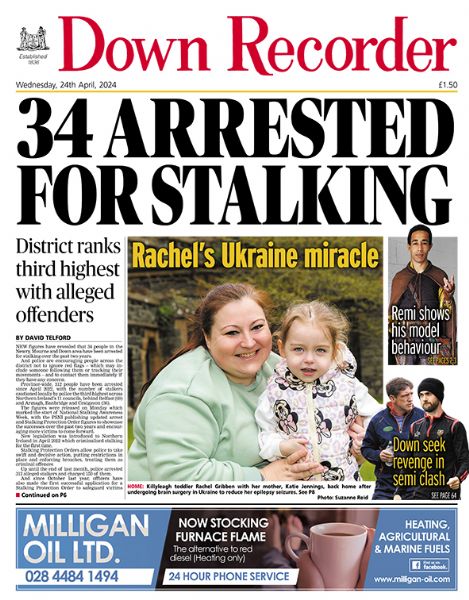A&E downgrading is justified in court
A&E downgrading is justified in court
14 December 2011
A FULL consultation process was carried out before health chiefs axed the consultant-led night time emergency service at the Downe Hospital, the High Court has heard.
On Thursday, the third day of a judicial review into the decision brought by Castlewellan hospital campaigner John Duggan, counsel for the Department of Health said the public was well informed about the reasons behind the decision.
Full night-time emergency cover at the new £64m Downe Hospital ended in April when the South Eastern Trust, backed by the Department of Health, went ahead with a proposal to replace it with an out-of-hours GP service between 10pm and 8am.
Mr. Duggan was one of many local residents, backed by Down Council, who had voiced serious concerns about the plans.
At Thursday’s hearing Mr. Justice Treacy was told the failure to include an options appraisal document in the consultation papers, which scored the various options open to the Trust, was an omission, and would not have impacted on the proposal.
“It wasn’t a decision to keep it out of the public domain,” said the Department of Health’s barrister, Paul McLaughlin. “Rather what they did was summarise its contents.”
Mr. Justice Treacy asked if there was a conscious decision not to disclose the options appraisal document, or rather if no thought had been given to it.
He was told: “It really was an omission.”
Mr. McLaughlin told the hearing: “The consultation document sets out exactly what the problems were and the constraints facing the Trust.
“There was a very full consultation response at the highest level, with a lot of political interest and a lot of public interest.”
At last Wednesday’s sitting of the judicial review, Mr. McLaughlin argued that a shortage of doctors forced the night time closure of the A&E unit.
He said eleven middle grade doctors, not including consultants and associate specialists, were required, and the Trust began to realise a 24-hour service was unsustainable when only five such doctors were available.
Asked by Mr. Justice Treacy if the A&E department would have continued as envisaged if the staffing problem had not arisen, the barrister replied: “Absolutely.”
“Quite simply the staff just don’t exist,” he said. “That is the case right across the UK and it isn’t actually challenged by the applicant.”
The judge questioned him about a radio interview where a doctor claimed he and others would have been interested in positions if they had been aware of a job advertisement. Mr. Justice Treacy put to him a suggestion made by Mr. Duggan’s lawyer — that the authorities were more interested in financially-driven reductions by stealth rather than filling vacancies.
He was told that no such evidence exists to support such a theory.
The judicial review was adjourned until December 20.

